It’s dusk in Corleone, Sicily. From the jaw-dropping hilltop view overlooking the golden wheat fields and lush olive groves of Bona Furtuna, Adam Sobel, executive chef of Osteria Cal Mare in Los Angeles, California, ponders how for hundreds of years, people have been enjoying something as simple as an olive while watching the same sunsets we see today.
This is Chef Sobel’s third visit to Bona Furtuna, a 350-acre organic farm owned by Steve Luczo, former CEO of Seagate Technology. Built just six years ago on land where his grandmother was raised, the farm has a history so rich an archaeological site dating to 600 B.C. was recently discovered its property. Sobel finds inspiration in the rich history and distinct flavors of the products grown on the Sicilian farm, and he has partnered with Luczo to import his favorites—the bedrocks of the Mediterranean diet—to highlight the California bounty he equally reveres.
Later in the evening, I observe as Sobel plates a steaming bowl of pasta with the concentration of a surgeon. They’re two very different moments, but in each, nothing seems to exist for Sobel beyond what’s directly in front of him. Creating a soulful experience is what fuels the Long Island-born Italian-American chef.

Sobel discovered his love of cooking as a child in the kitchen of his Sicilian grandmother, whom he refers to as Nana Lu. At sixteen, he decided to make cooking his livelihood and has since worked in some of the finest restaurants across the United States, including Restaurant Guy Savoy in Las Vegas, which was awarded two Michelin stars under his tutelage. Today, in addition to helming his first restaurant located in Los Angeles’ Beverly Center, Sobel is executive chef and partner of the Michael Mina restaurant group (MINA), which has restaurants across the country.
As someone “obsessed with sourcing the greatest, most delicious things on earth,” Sobel goes to great lengths to find the highest quality ingredients to serve at Cal Mare, a restaurant known primarily for its seafood, pizza and pasta. “When it comes to fresh produce and fish I go hyper-local and celebrate what’s regional,” he says. However, he adds that the best olive oil, salt and tomatoes unquestionably come from Sicily.
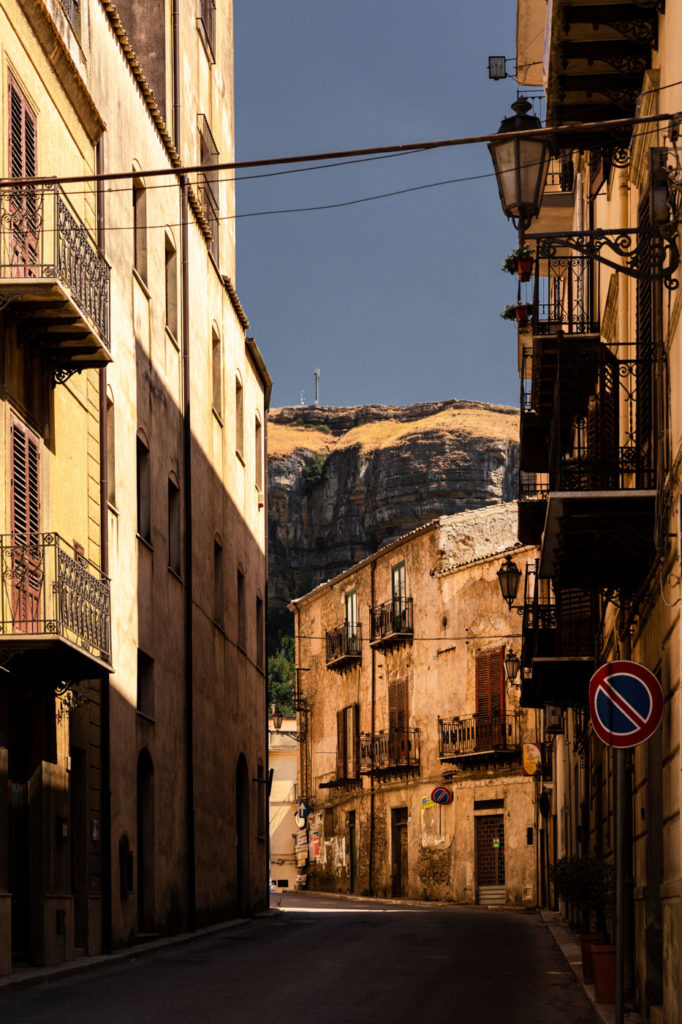

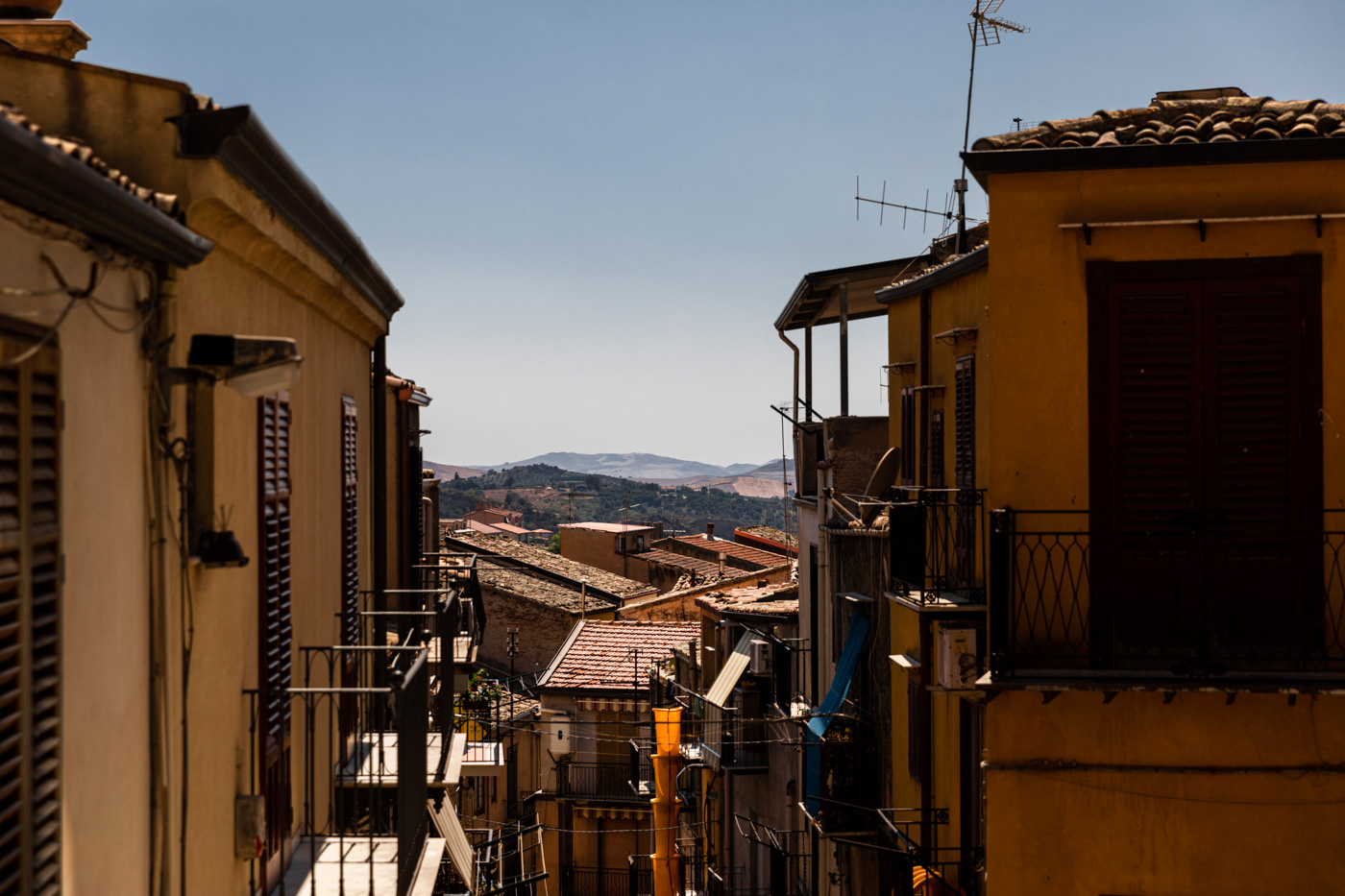
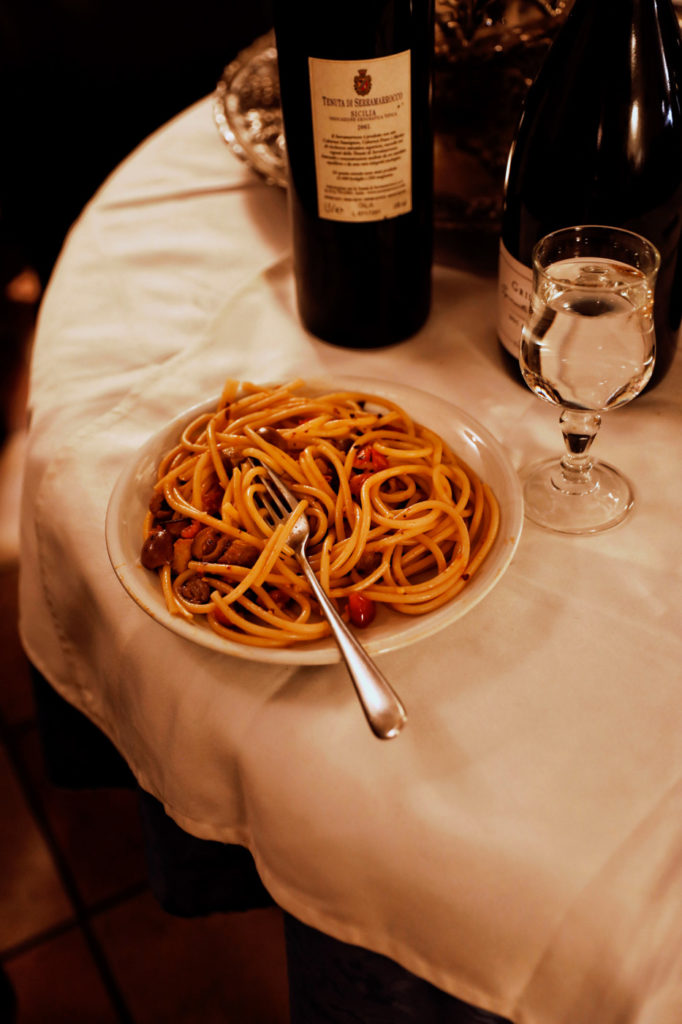
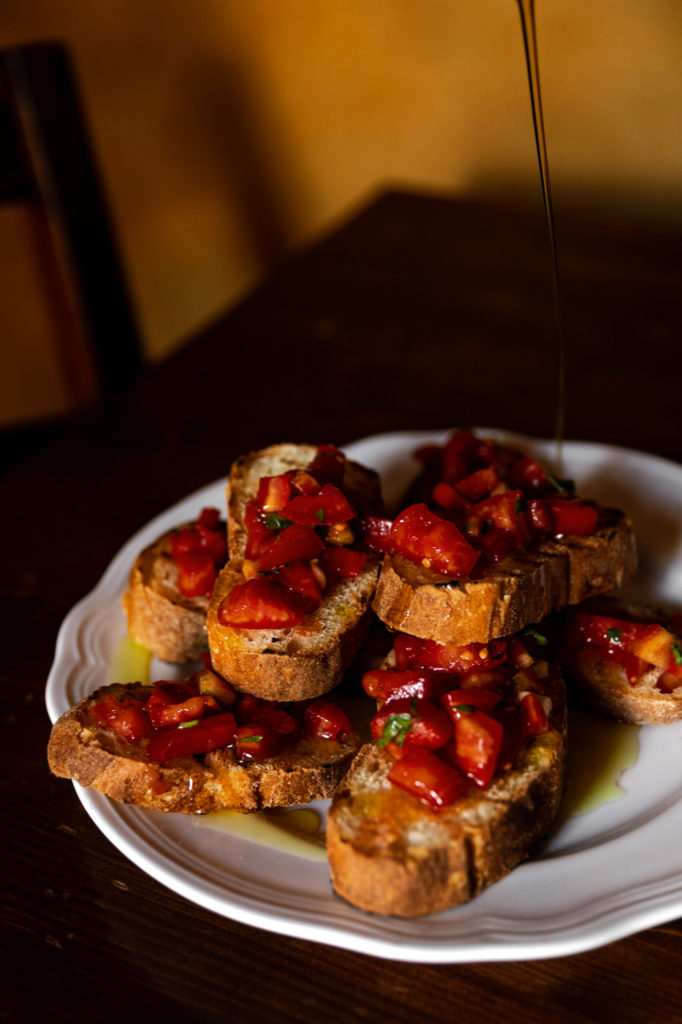
Located at the crossroads of the Mediterranean, grapes, wheat and olive trees were among the first crops introduced to Sicily in the 8th century B.C. by the Corinthians. Sicilian feasts are even mentioned in Homer’s The Odyssey. By the 4th century B.C., the island’s culinary traditions were so renowned that Archestratos, the first European food writer who traveled the Mediterranean “to satisfy his stomach,” praised the raw materials of Sicilian cooks in his 350 B.C. poem, “The Life of Luxury.”
In the 1st century A.D. some of the most celebrated wines of Italy came from Sicily, and by the 4th century, the island was the vast Roman Empire’s granary. So important was the role of wheat on the island that Demeter (Ceres), the goddess of agriculture and grain, is said to have taught milling and bread making there. Flour from wheat grown and milled at Bona Furtuna is used in Cal Mare’s pizza dough. For millennia, Sicilian ingredients have traversed miles.
Tomatoes first made their way into the Sicilian horti (garden) from the Americas in the 1500s. Although the fresh tomatoes served at Cal Mare are sourced from local California farmers, the restaurant’s signature tomato sauce comes straight from Bona Furtuna. The tomato fields on the expansive estate are surrounded by limestone, which Sobel believes gives them their distinct umami. In addition to heirloom Corleonese tomatoes, there are thousands of olive trees, hundreds of fruit trees, and dozens of wild herbs growing at Bona Furtuna. Truffles too.
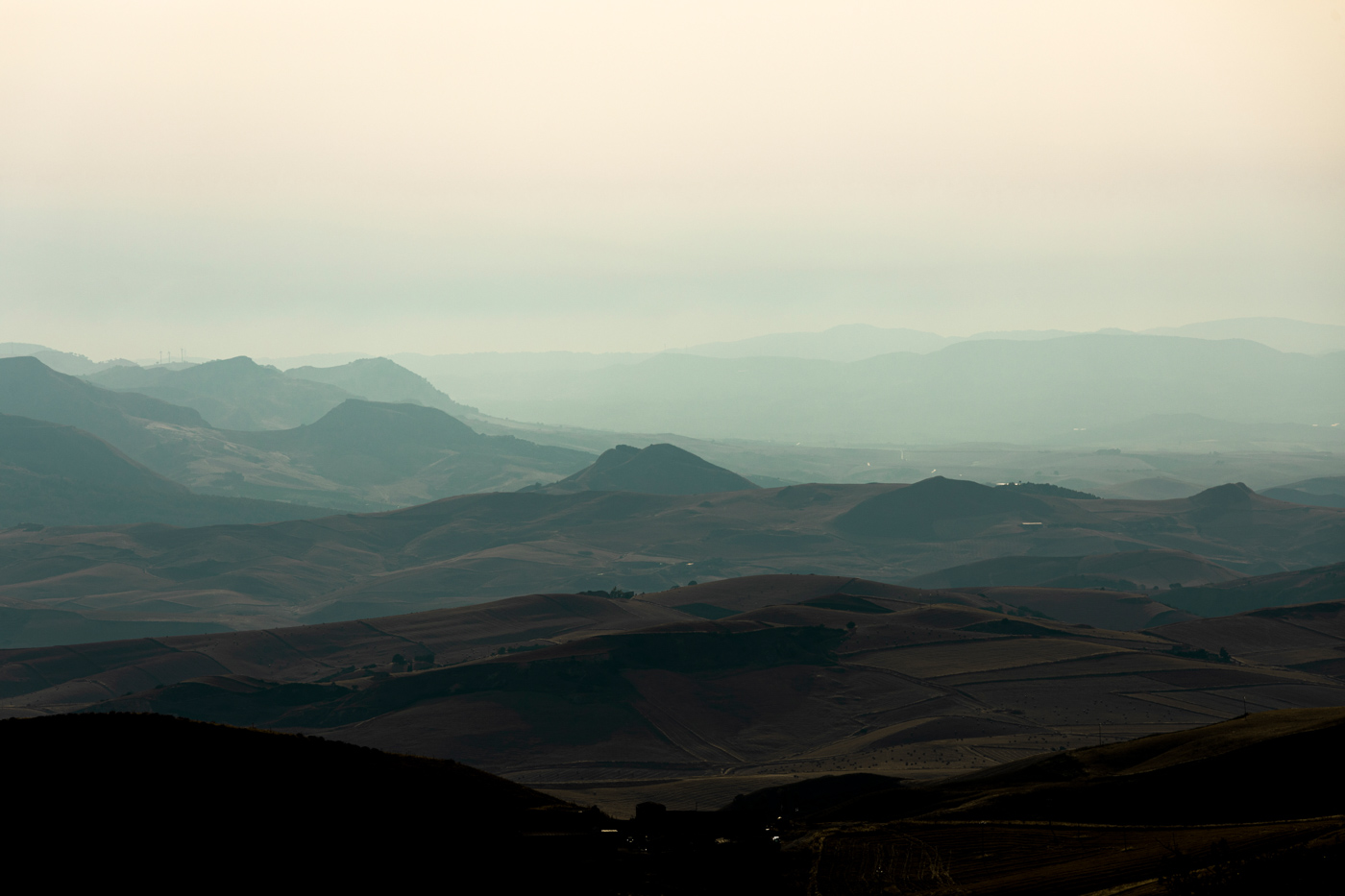
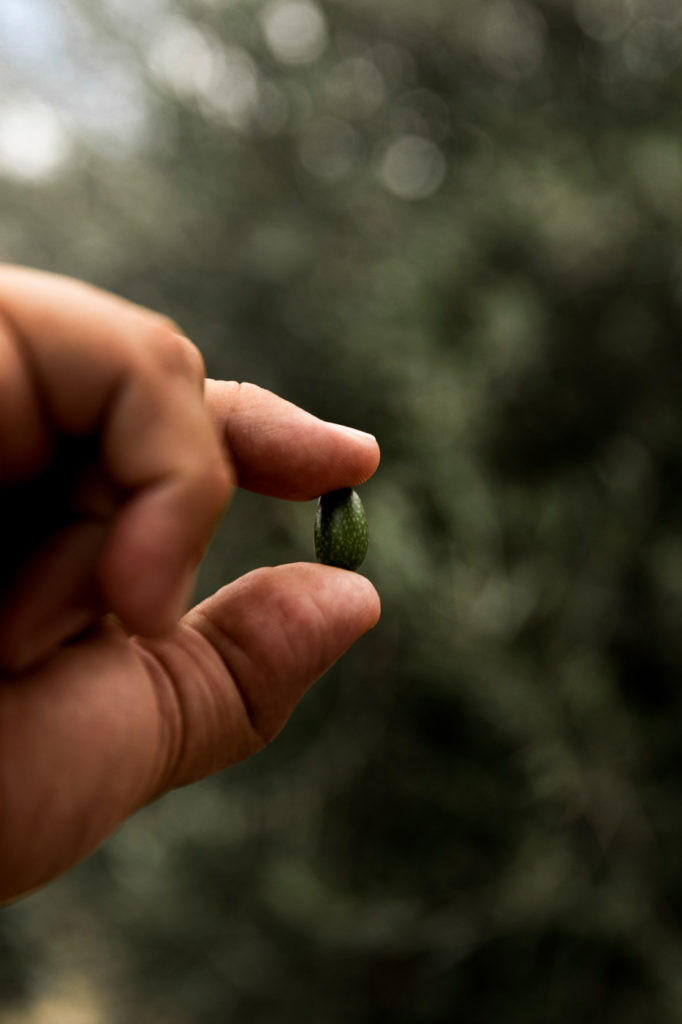

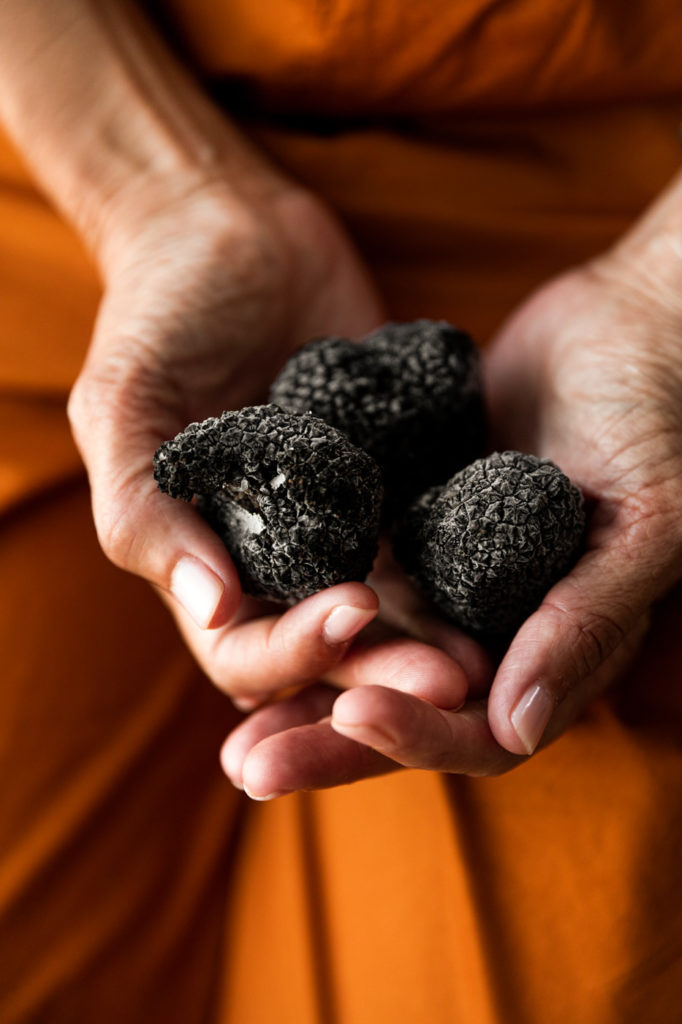
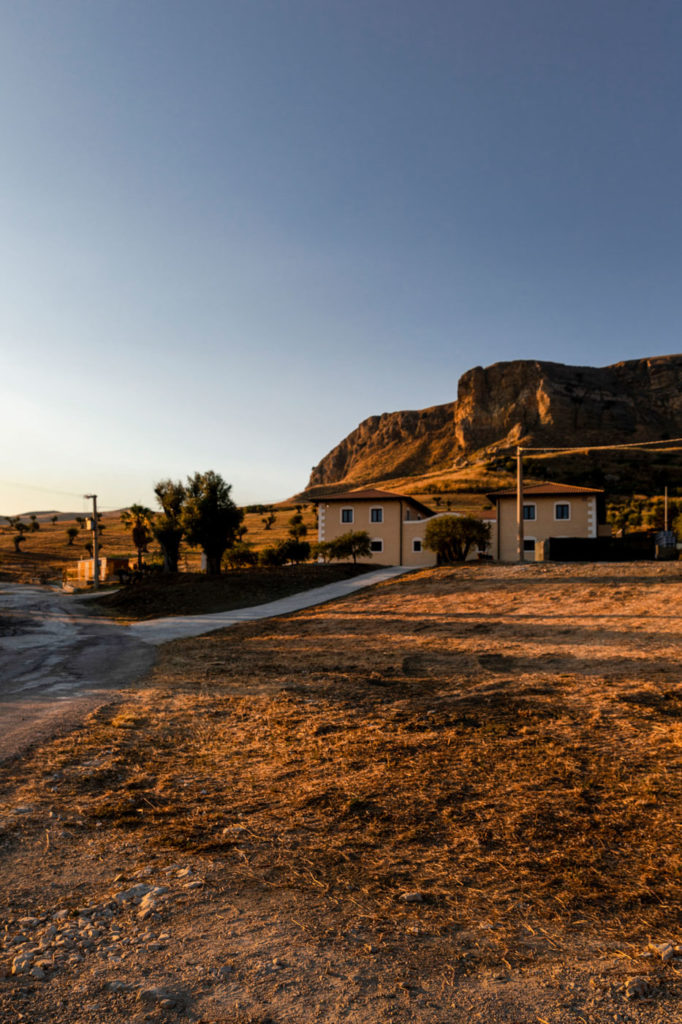
Thanks to master botanist and agronomist Pasquale “Mimmo” Marino, the young farm is flourishing. When Marino first visited, there had been no agriculture on site for four hundred years. The land “was sleeping,” he says. There were only four olive trees. Today, there are twelve thousand, including a cultivar unique to the farm. Together with bread and wine, the fruit and oil of the olive is the bedrock of Mediterranean cuisine.
Greek settlers imported their beloved olive trees to Sicily in the 6th century B.C. and olive oil has been produced on the island ever since. (Athena, the Greek goddess of war and wisdom, is credited with giving the Sicilians their first olive tree.) Today, Sicily produces about ten percent of Italy’s olive oil. Bona Furtuna’s award-winning, estate-produced olive oil was the first ingredient from the farm Sobel had the pleasure of tasting and is the sole olive oil used at Cal Mare.

Marino feels a strong bond to the crops grown on the land; they are directly tied to his heritage. He has made it his mission to preserve tradition and revive ancient flora. “This is a museum of life,” Marino says of the farm.
In addition to wheat, tomatoes and olive oil, salt from the Salina Culcasi in Trapani—one of the oldest salt pans in Europe—is seasoned at the farm using estate-grown lemons, herbs and/or spices. Salt has been produced in Sicily since prehistoric times. Bordering the Mediterranean, the salt pans at Trapani were built by the Phoenicians, who used salt as a valuable trade commodity, around 2,700 years ago. For millennia, salt has been used as a flavor enhancer and preservative.
With medieval windmills dotting the landscape, the dramatic pink-red natural salt pans at Salina Culcasi are mesmerizing. Pumps powered by these centuries-old windmills suction water through gates in and out of various basins that become narrower and shallower before the salt is harvested. “I’ve been using that salt for years, but I never knew the process,” says Sobel in awe upon his first visit to the salt pans. “They’ve been doing it for thousands of years and the end product is the best on earth.” One of Sobel’s favorite ingredients to use in his fish dishes at Cal Mare is Salina Culcasi’s 100-percent natural and chemical-free salt seasoned with Bona Furtuna’s lemons.

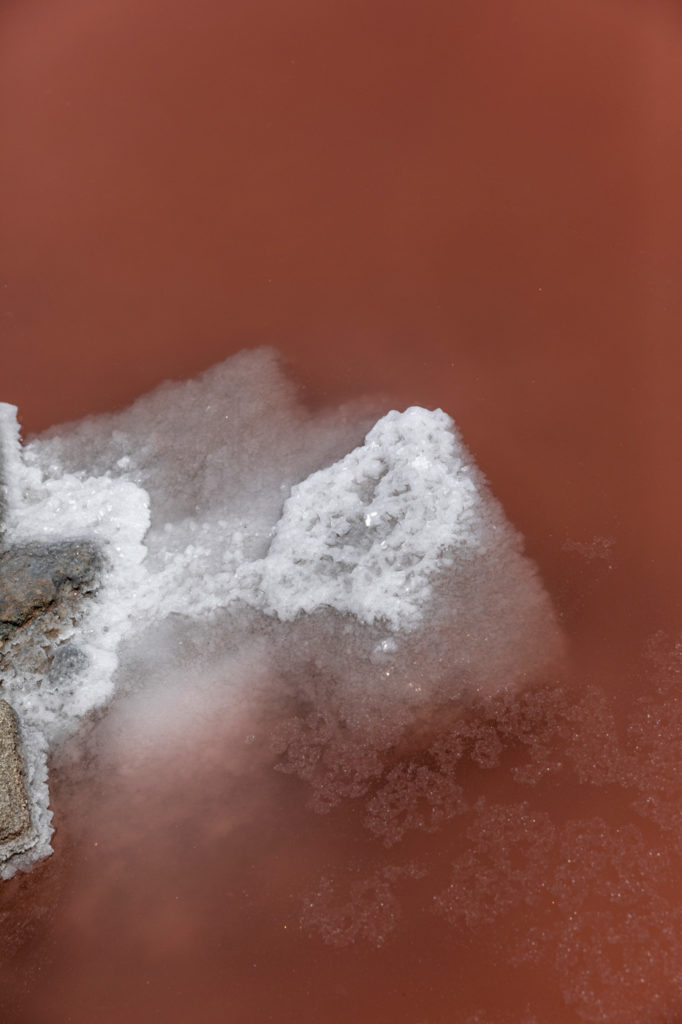
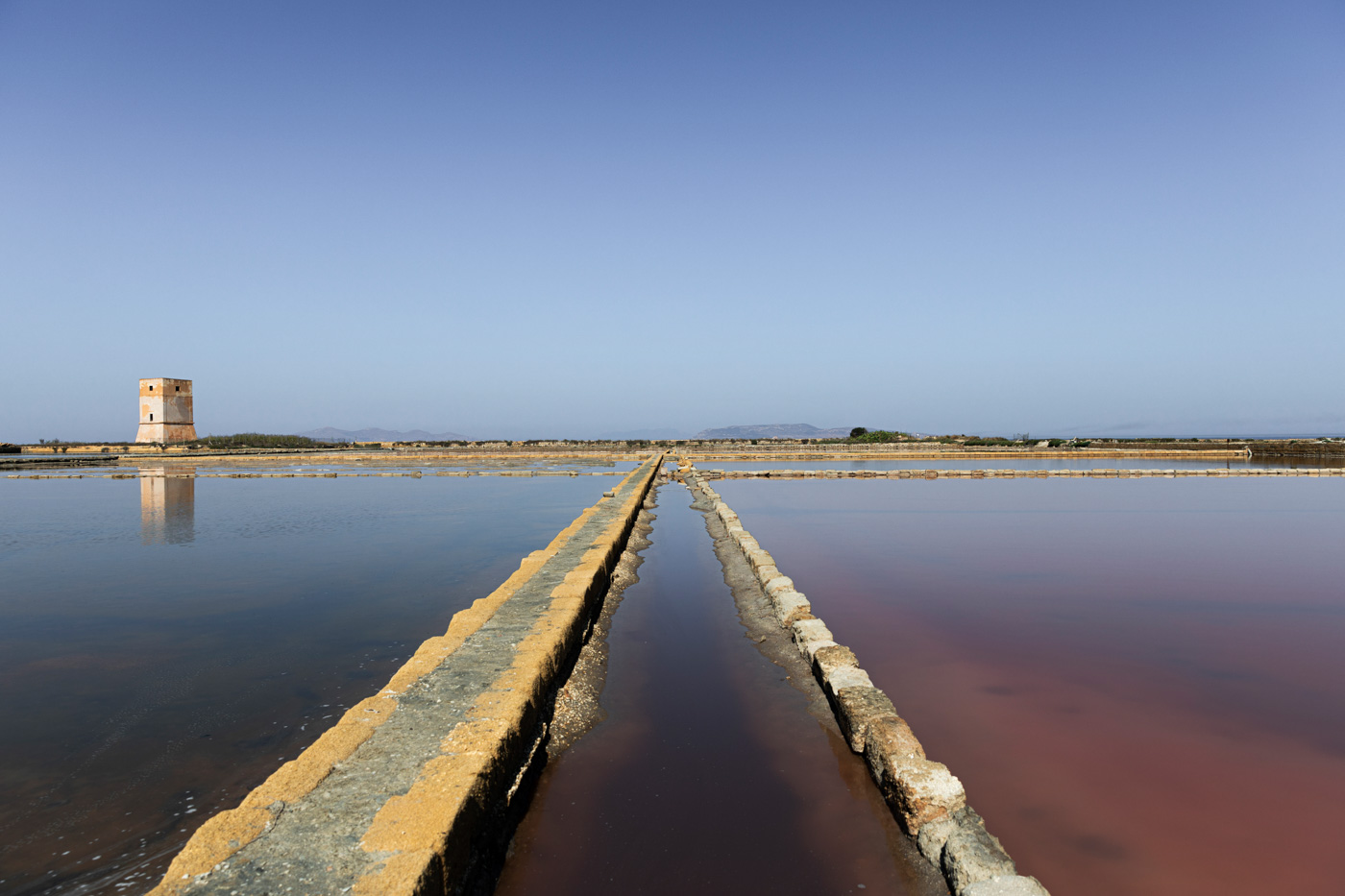
By marrying California bounty with salt, olive oil and tomatoes, Sobel is simultaneously championing the local movement and helping keep heritage ingredients integral to Sicilian culture. The relationship with Luczo is mutually beneficial. For Sobel, getting the products at cost helps run a profitable restaurant while Luczo’s products are given a platform by a chef who, Luczo says, lets “the ingredients sing.” The partnership also provides funding and vanguard technology for Marino’s botanical advancements and experiments and helps the Corleonese economy by employing local farmers. The bonus: Los Angeles diners get to experience a taste of Sicily. It’s a win-win for all. “A dream,” says Sobel.
On the afternoon of that final Sicilian sunset, local sausages are being grilled at Bona Furtuna. “I bit into the sausage sandwich and was transported to my grandmother’s apartment in 1988,” Sobel tells me. “I could see her standing at the stove frying sausages and putting them on a little semolina roll with sesame seeds.” For Sobel, that magical ability of food to move one through time and space is what he hopes his diners will feel. “It’s 100-percent my goal to bring the feeling, the ingredients, the soul, and the stories behind each ingredient to my guests in the restaurant.” As an ode to Sicily and to California, Cal Mare does just that.







Our comments section is for members only.
Join today to gain exclusive access.